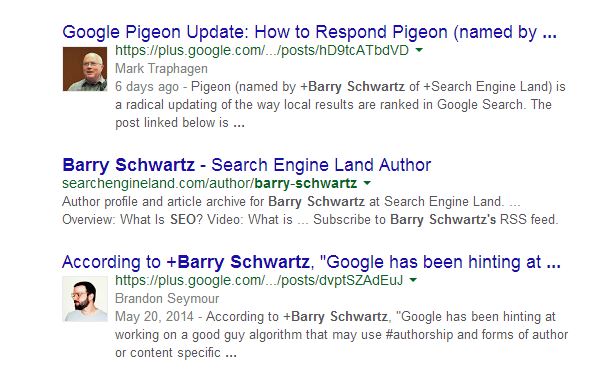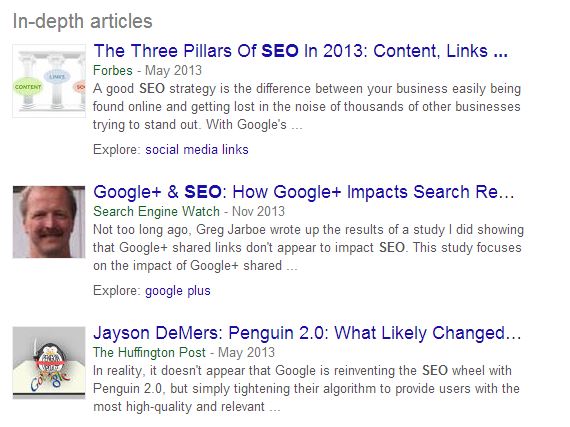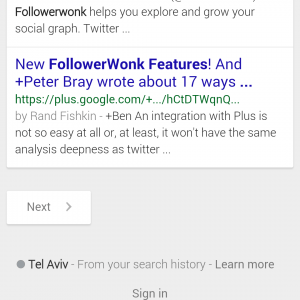Back in June, I wrote a post discussing Google’s plans to “simplify” the way authorship was displayed. In case you missed it, Google announced that in addition to hiding circle counts, they would also be removing the coveted authorship photos from search results. This came as a big blow to many SEOs and site owners, since the authorship photos allegedly helped to increase click-through-rate. As I mentioned in my previous post , I highly doubt that this the end of Google Authorship. Instead, I think what we’re beginning to see is authorship 2.0.
Here are a few reasons why I think authorship isn’t going anywhere, anytime soon:
Reason #1
Authorship photos aren’t completely gone. Google has removed authorship photos from external sites. But authorship still works for Google+ posts:

Also for in-depth articles:

And it works for brands using rel=publisher, too:

Reason #2
Google is starting to place more emphasis on author rank. Google uses author authority as a ranking factor when displaying in-depth articles and personalized results (for logged in users). By building up your author authority, you can establish yourself as an expert in your industry and thereby increase the likelihood of ranking for industry-related keywords and search queries.
Here’s what Matt Cutts had to say about the importance of author rank in his SMX Advanced keynote presentation:
I’ve said before I think the long term trend is that we will use that data more, but as far as the specific instances, I can’t get into that. I am a big fan of the idea behind Author Rank. Now as far as what the timeline looks like, how the logistics work, all that sort of stuff, that’s a difficult problem, and we have to figure out how to solve it.
Regardless whether or not Google figures out how to make it all work, it can’t hurt to be prepared.
Reason #3
Users don’t have to be logged in to see your Google+ posts. The personalized results are great for getting more of your content in front of your followers. But some Google+ posts are beginning to rank in public results (for users who are logged out) Although it may not include your authorship photo, you still get the rankings benefit.
Here’s an example of a public mobile result from Aaron Friedman:

Image source: searchengineland.com
Reason #4
Most importantly, Google authorship establishes credibility on the web. Google knows that people will trust people before they trust brands. I’ll bet that once Google works out the kinks with authorship, we’ll see a shift towards a heavy brand presence in personalized search results. Despite those who look at Google’s social network as a virtual ghost town, last year it was reported that 70 percent of local B2C businesses had a presence on Google+. The number is likely to have grown substantially over the past year. The more Google+ continues to evolve, the more businesses will need to start incorporating authorship into their overall online marketing strategy.
Image Credit: Flickr User Carlos Luna


